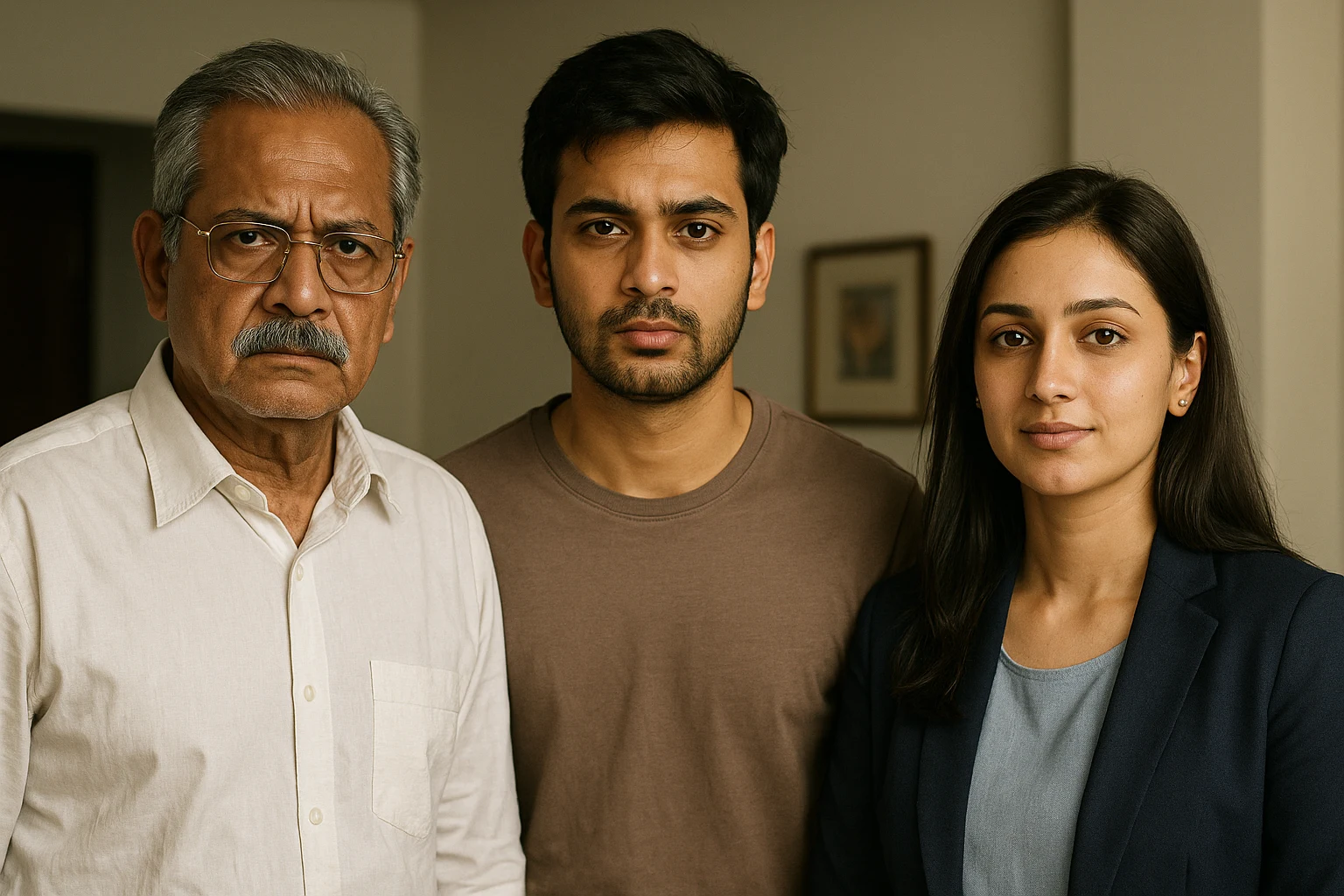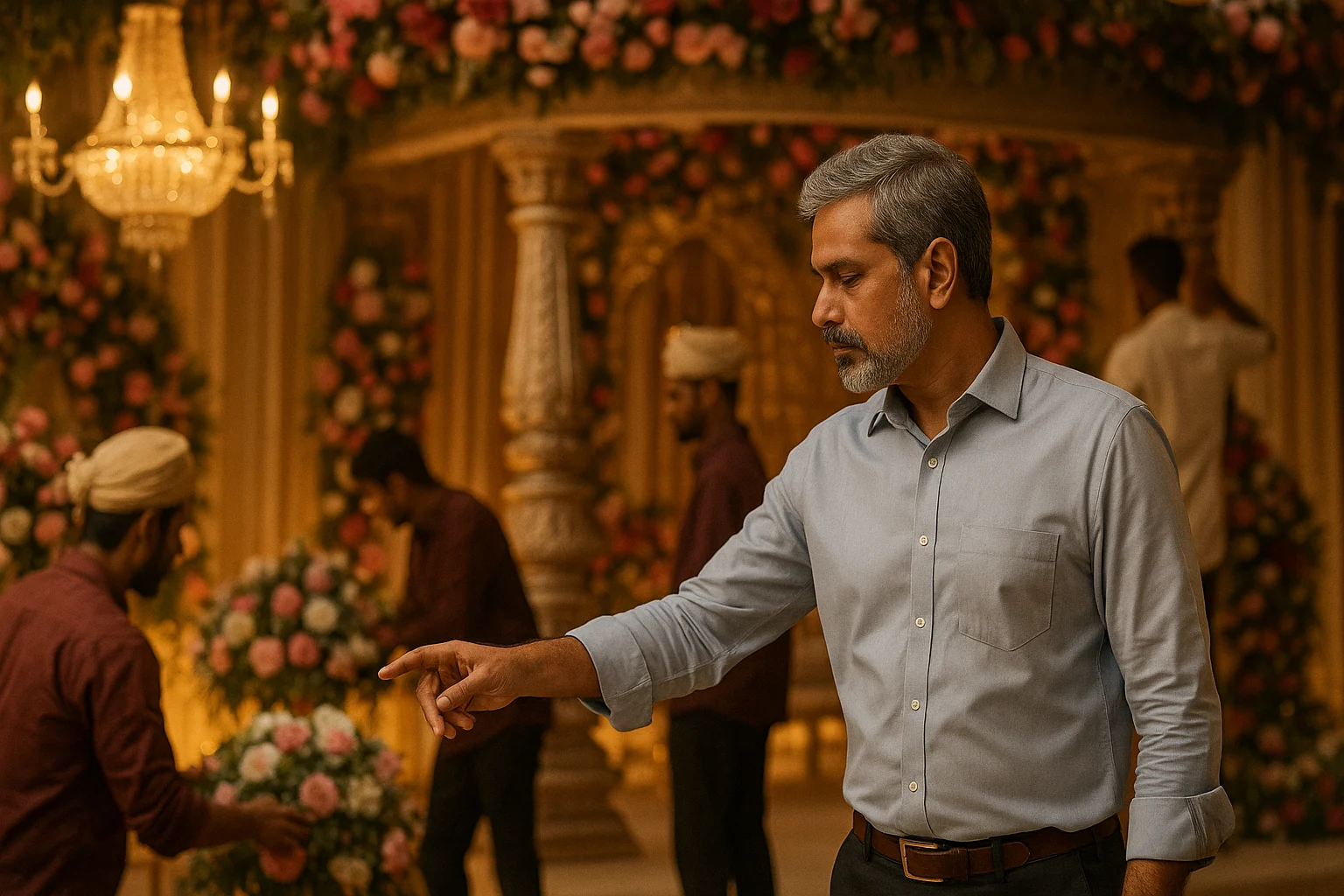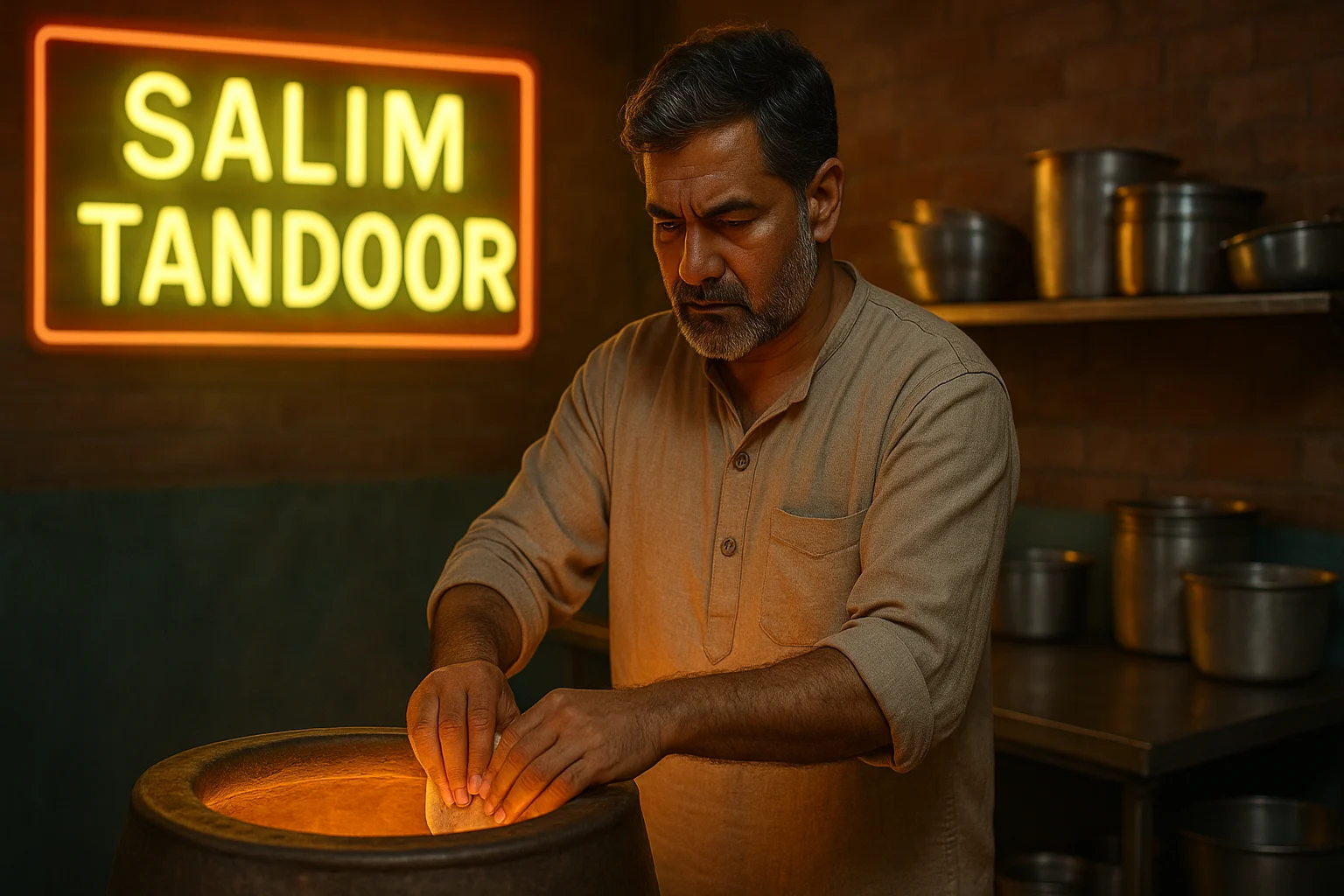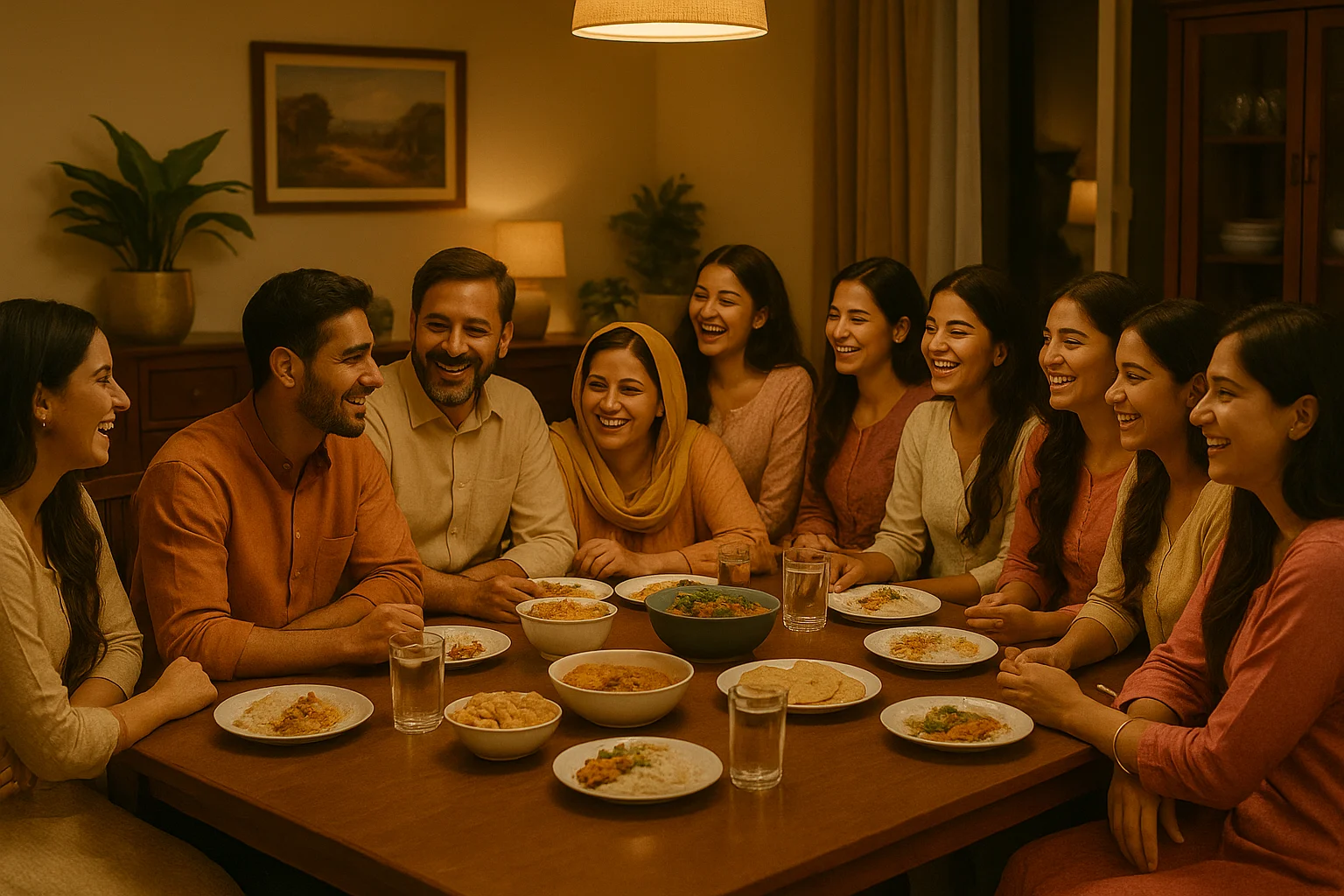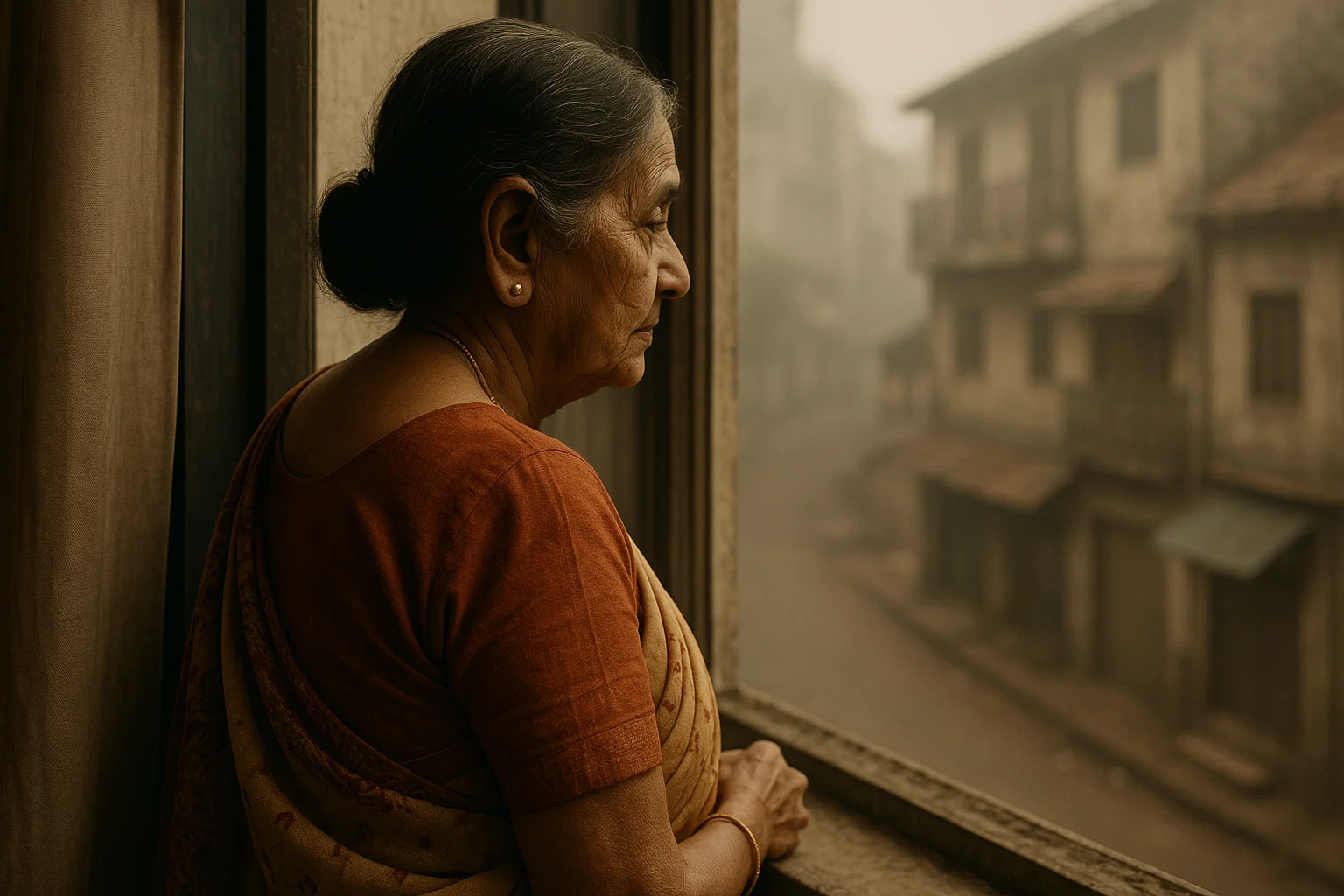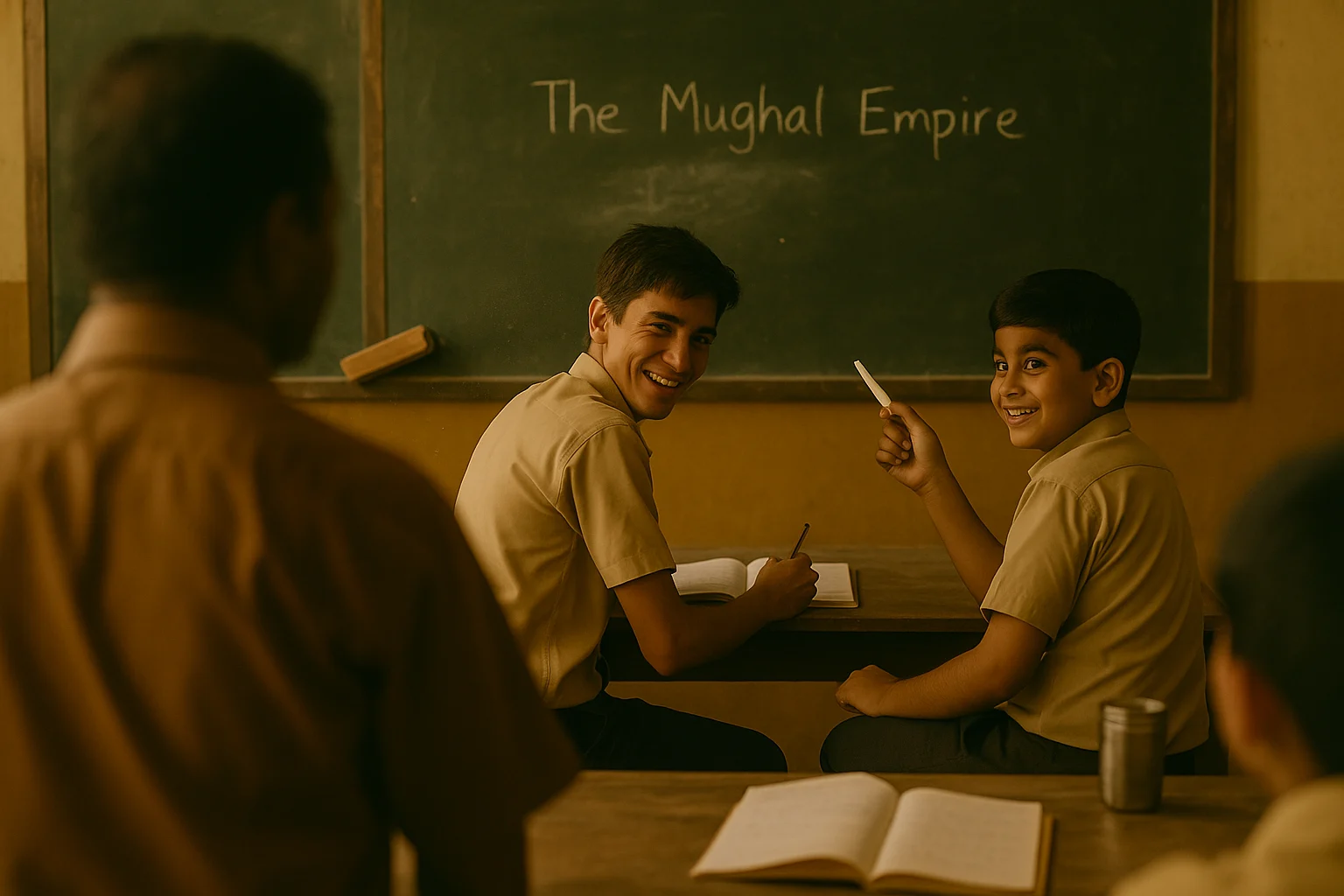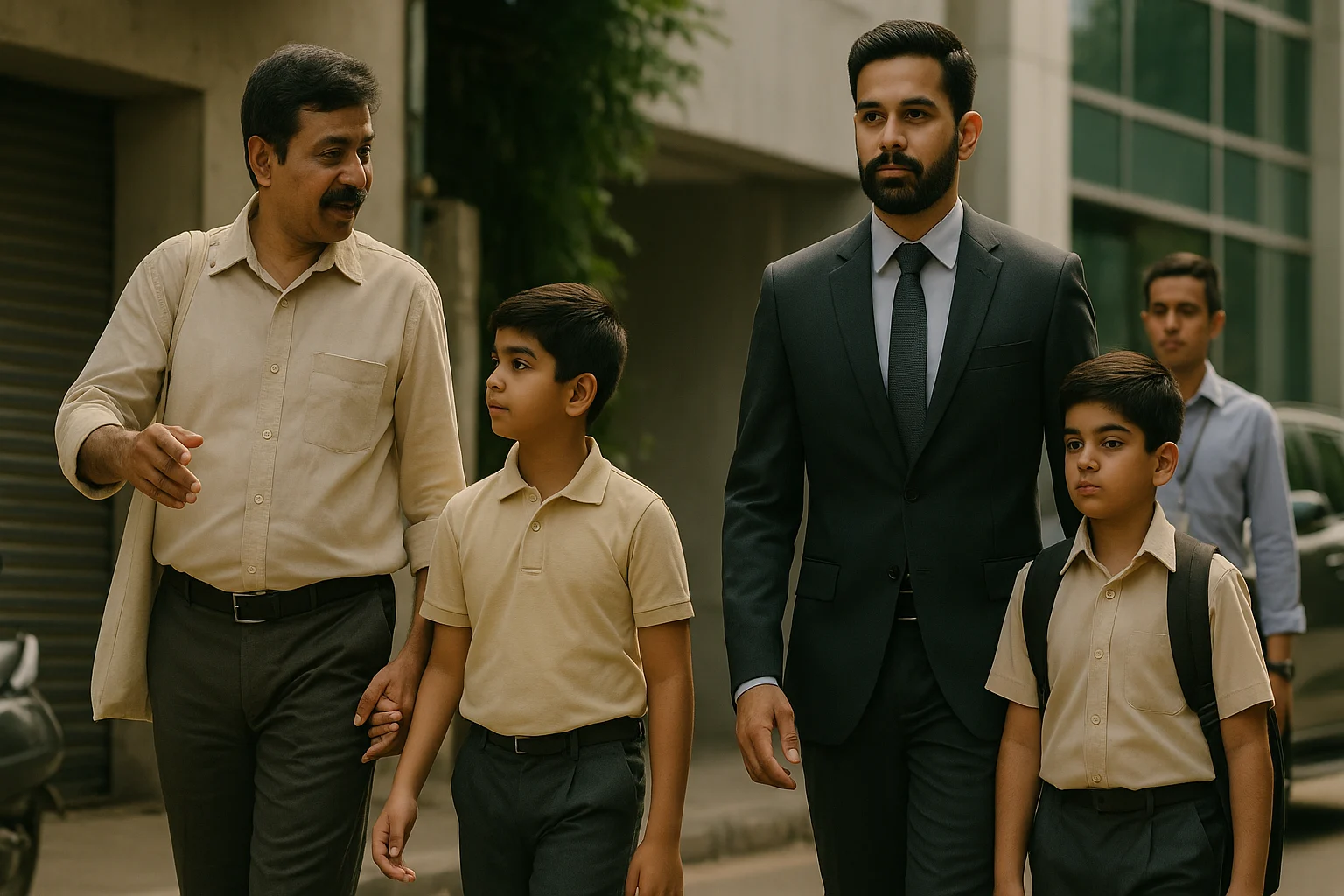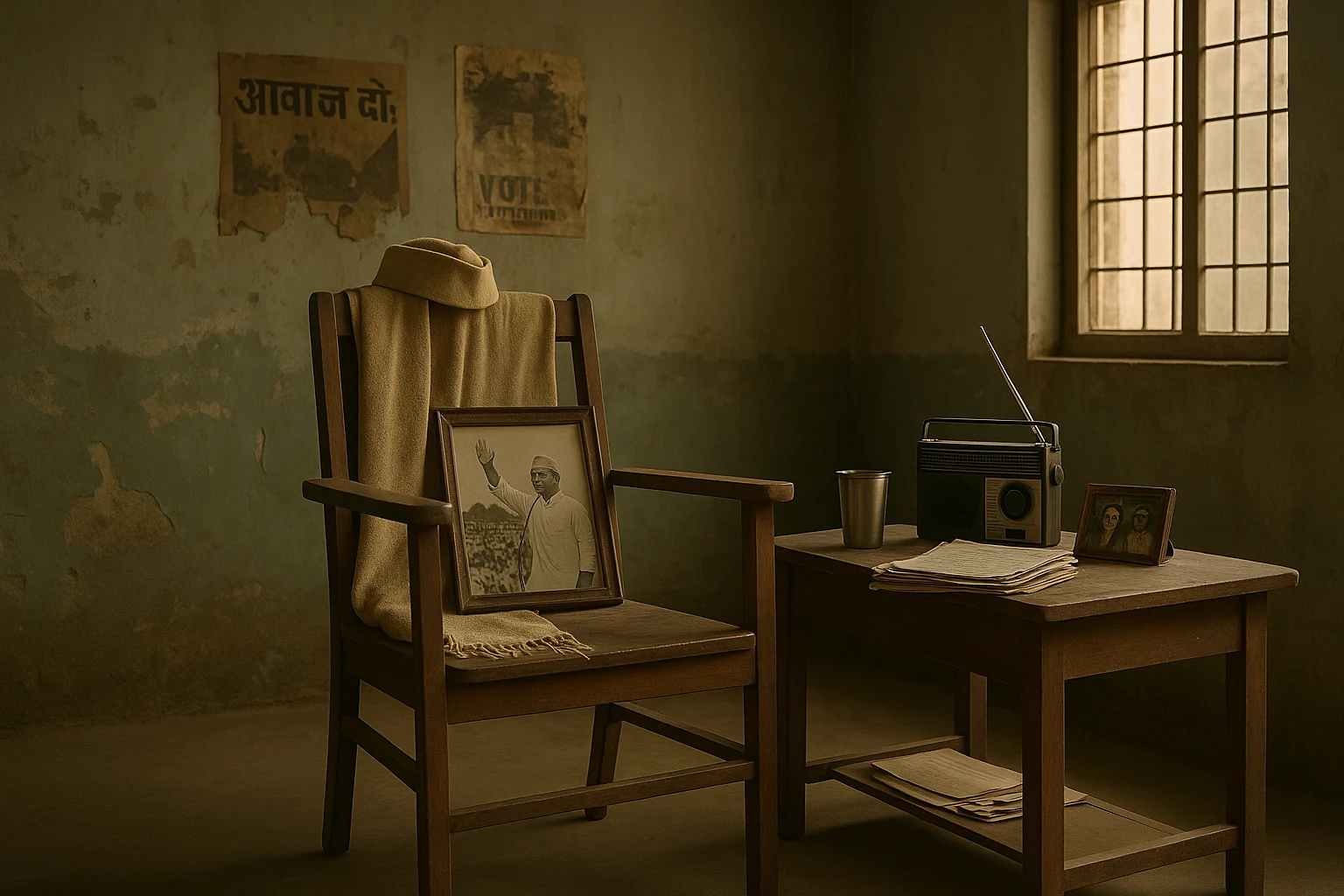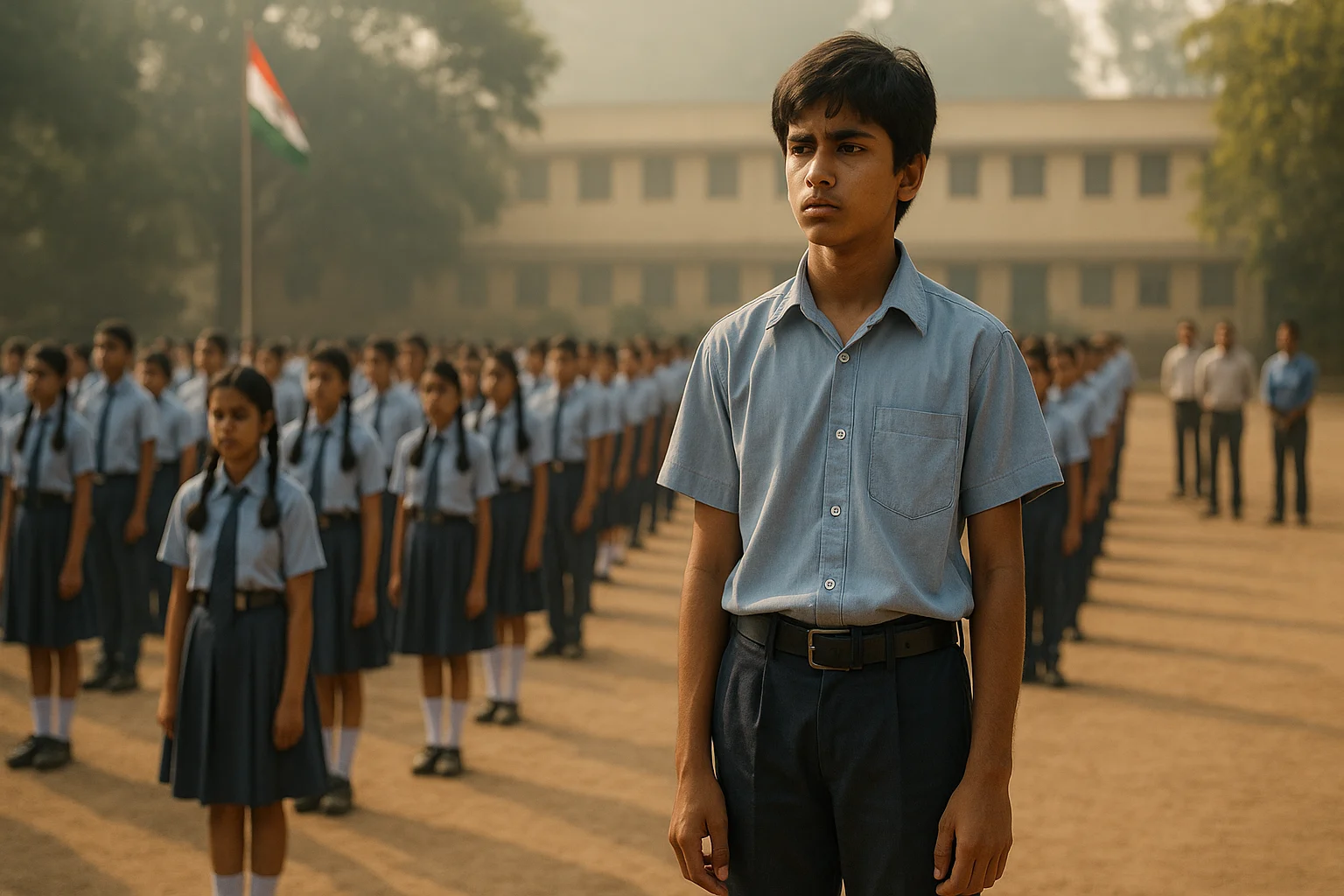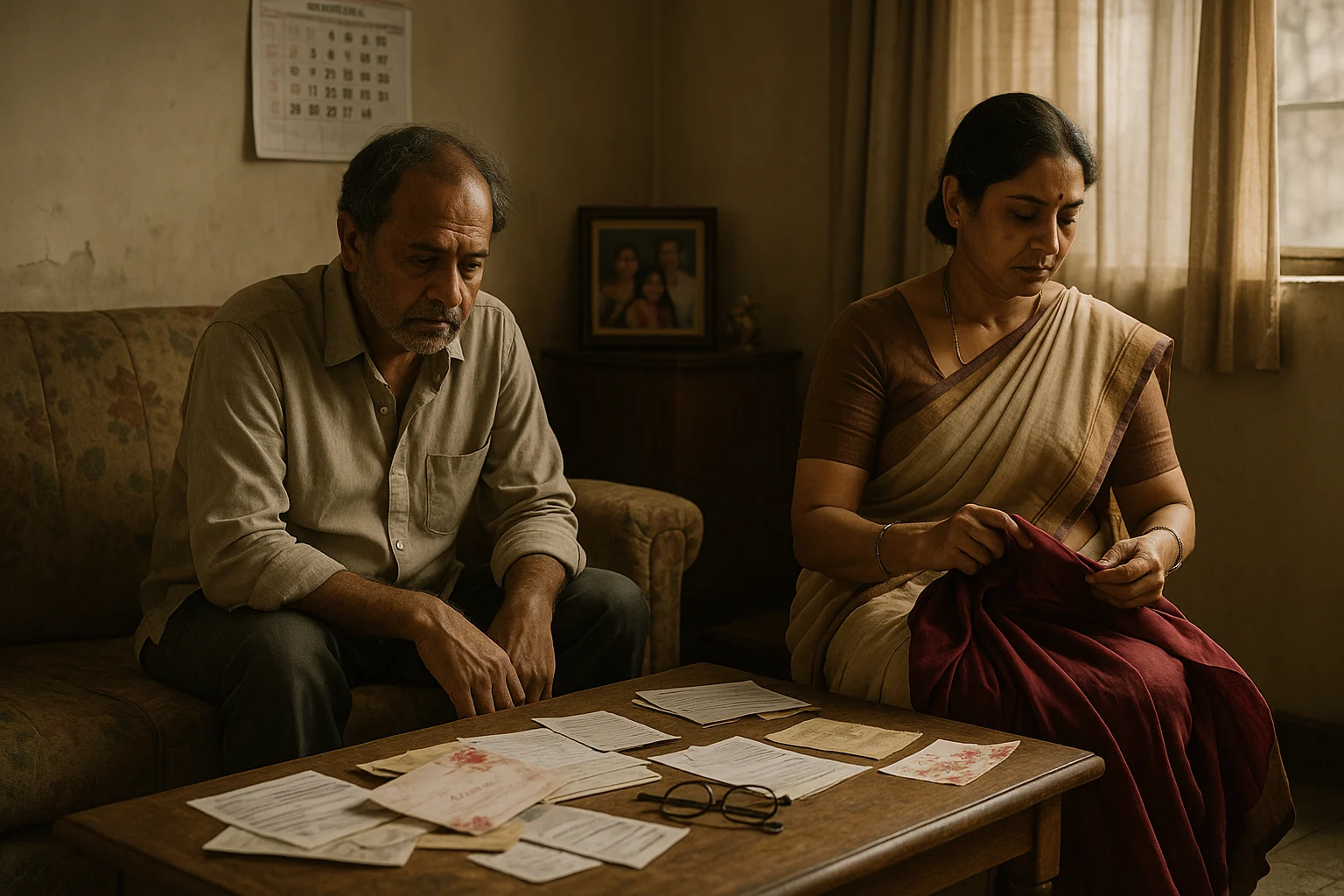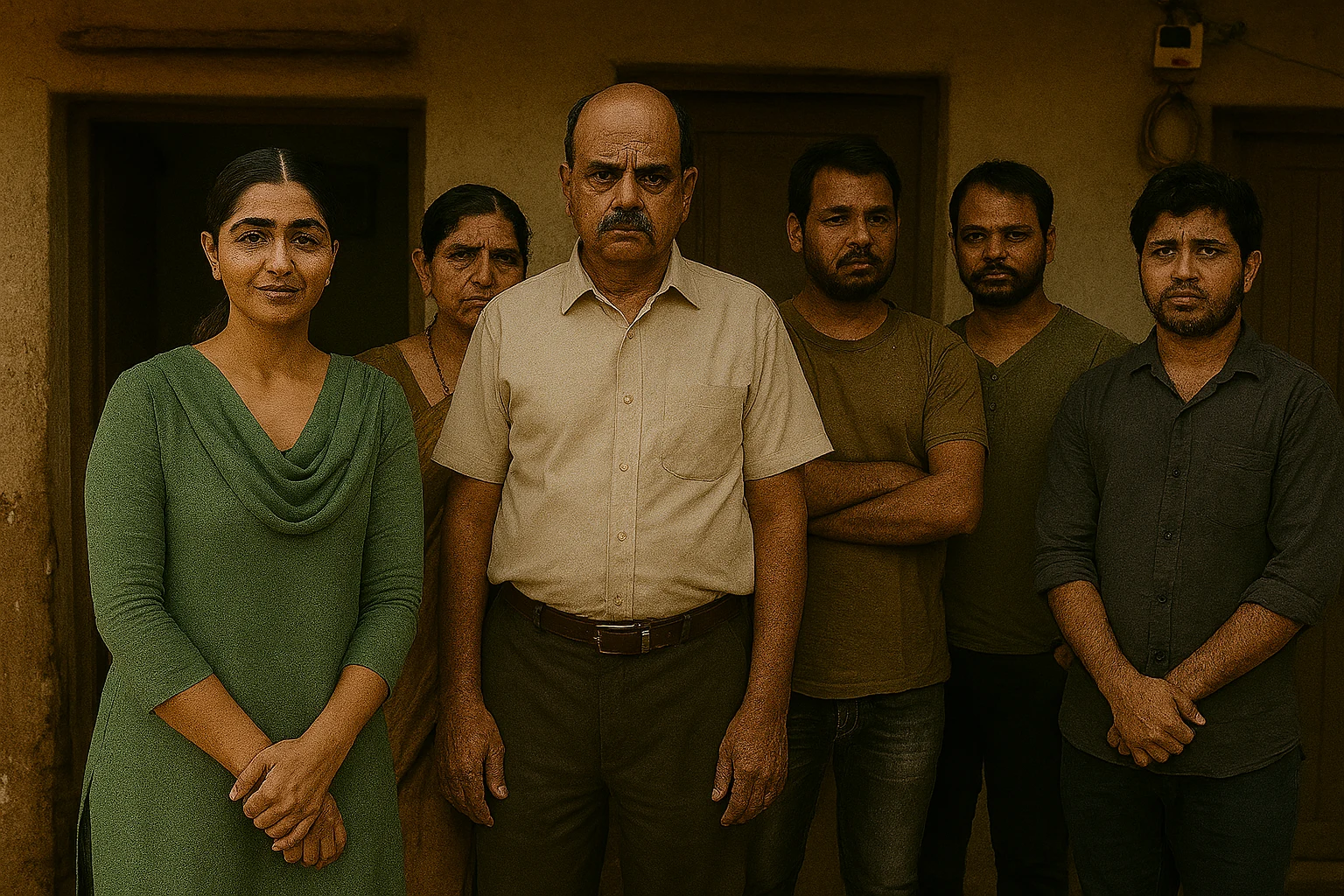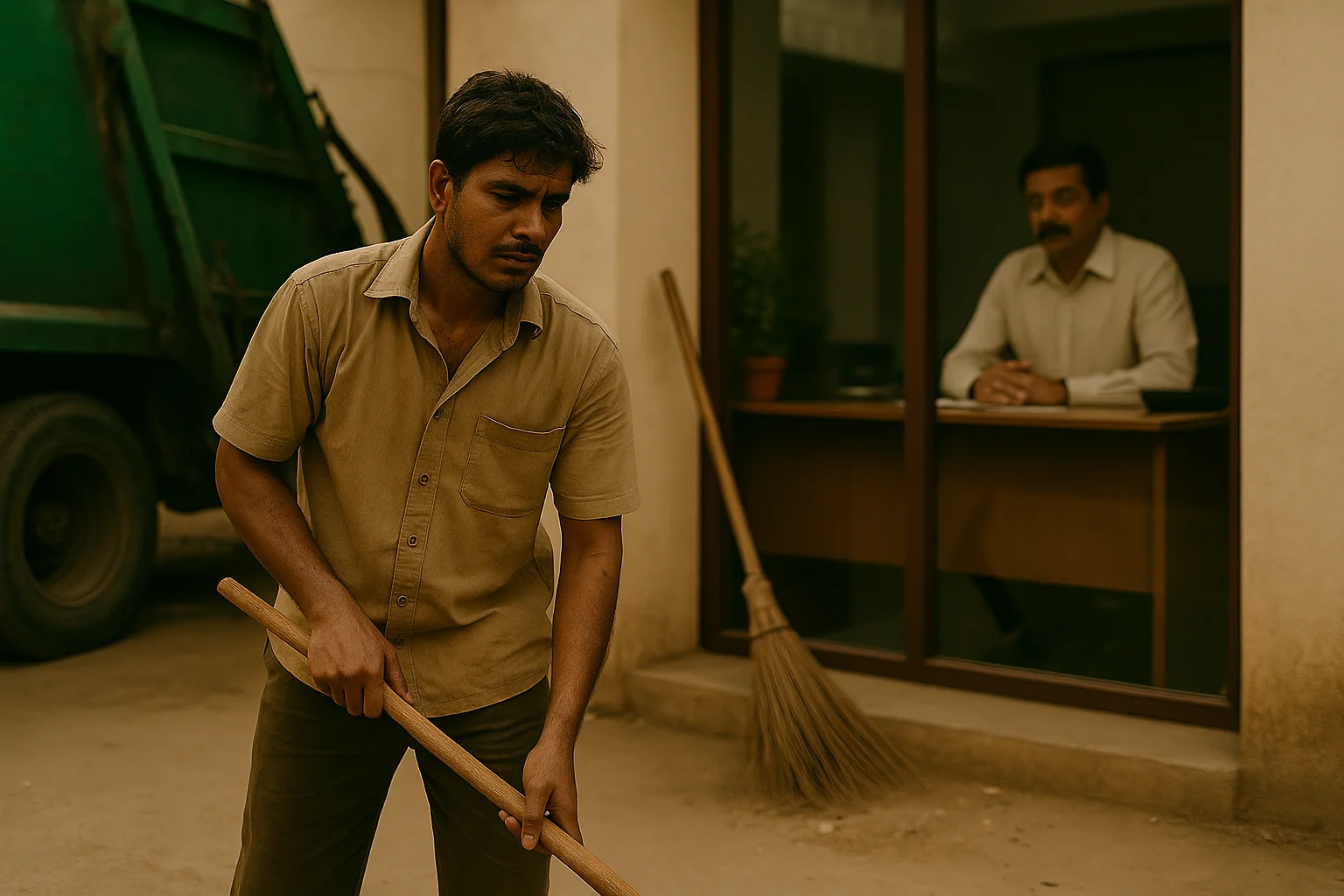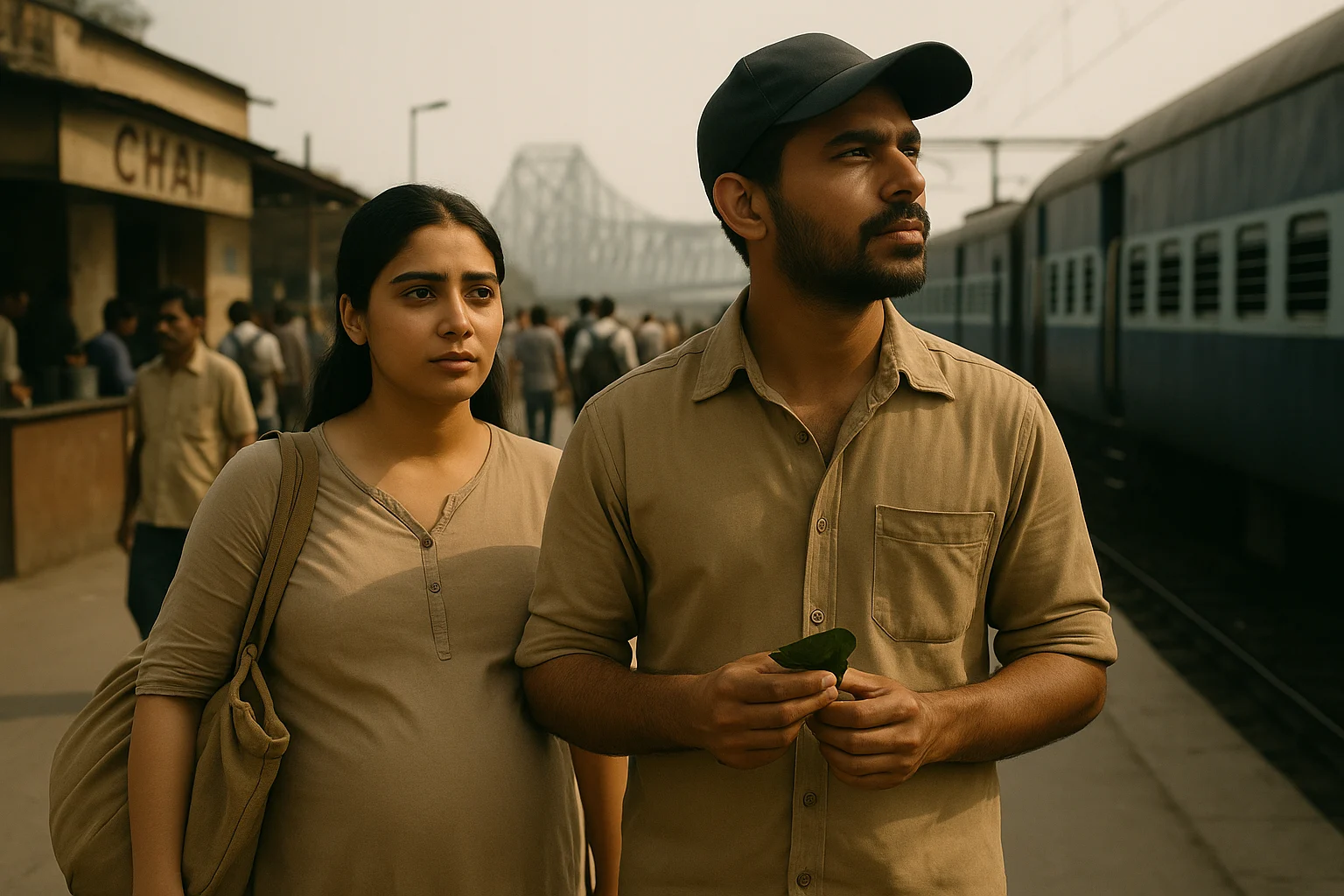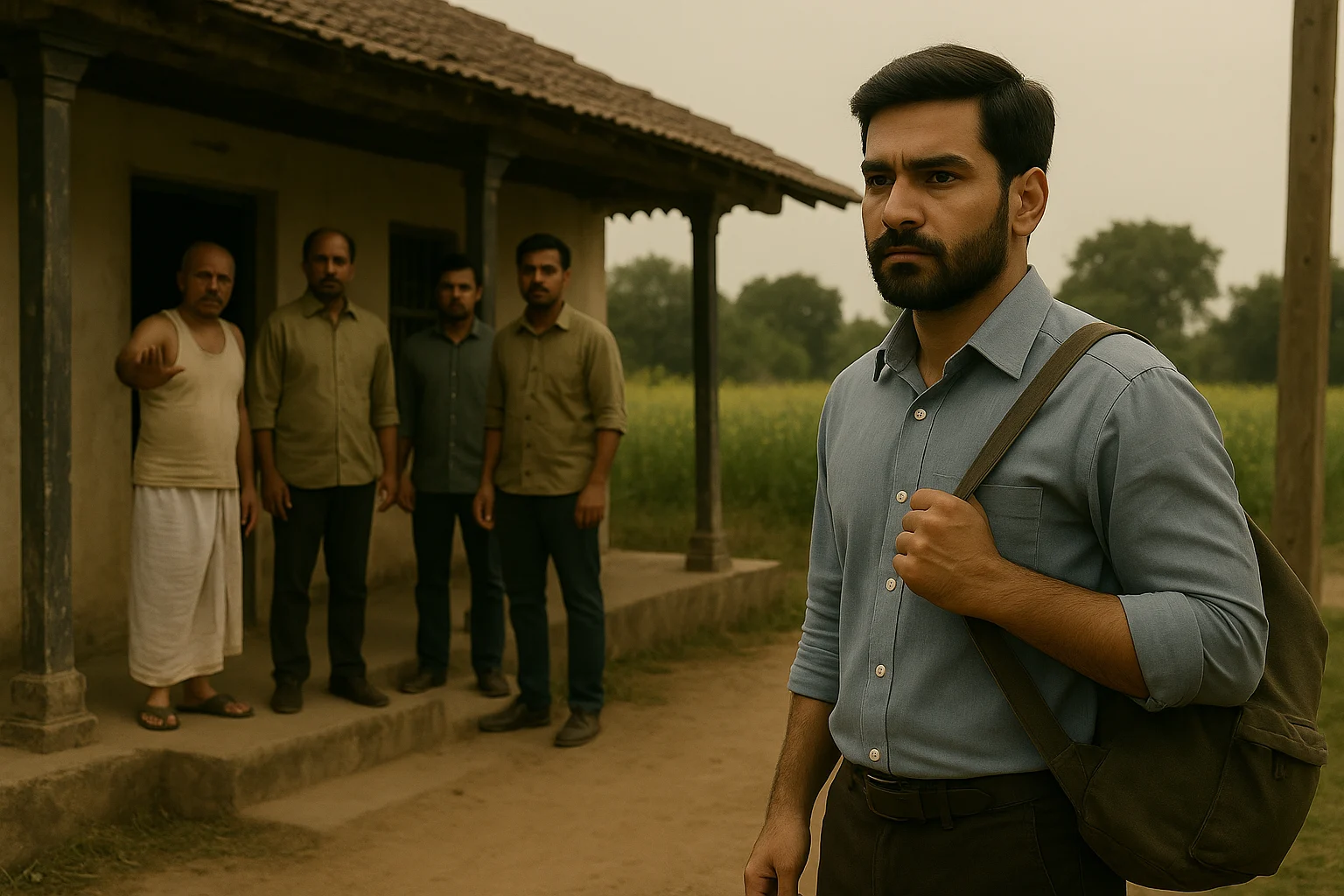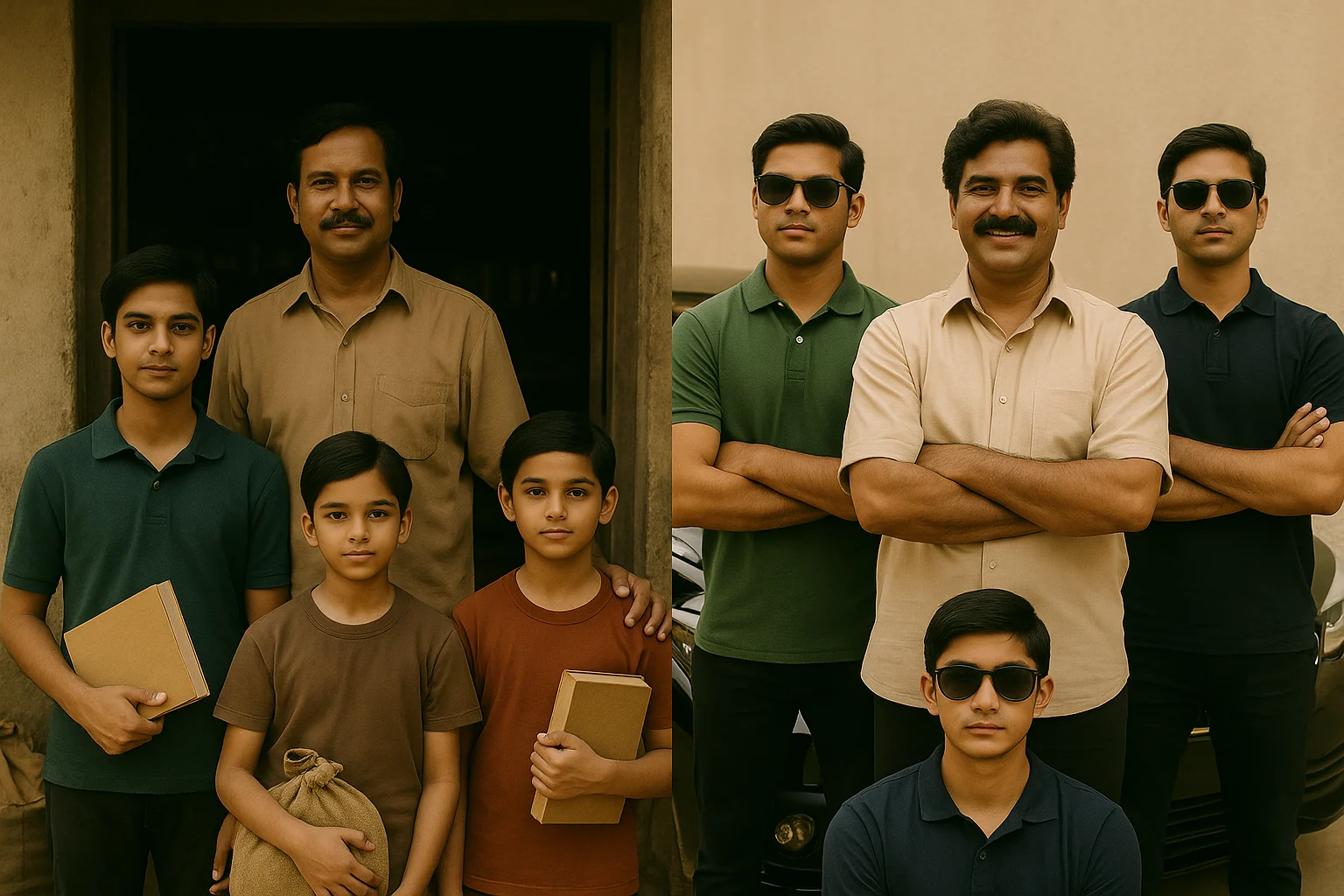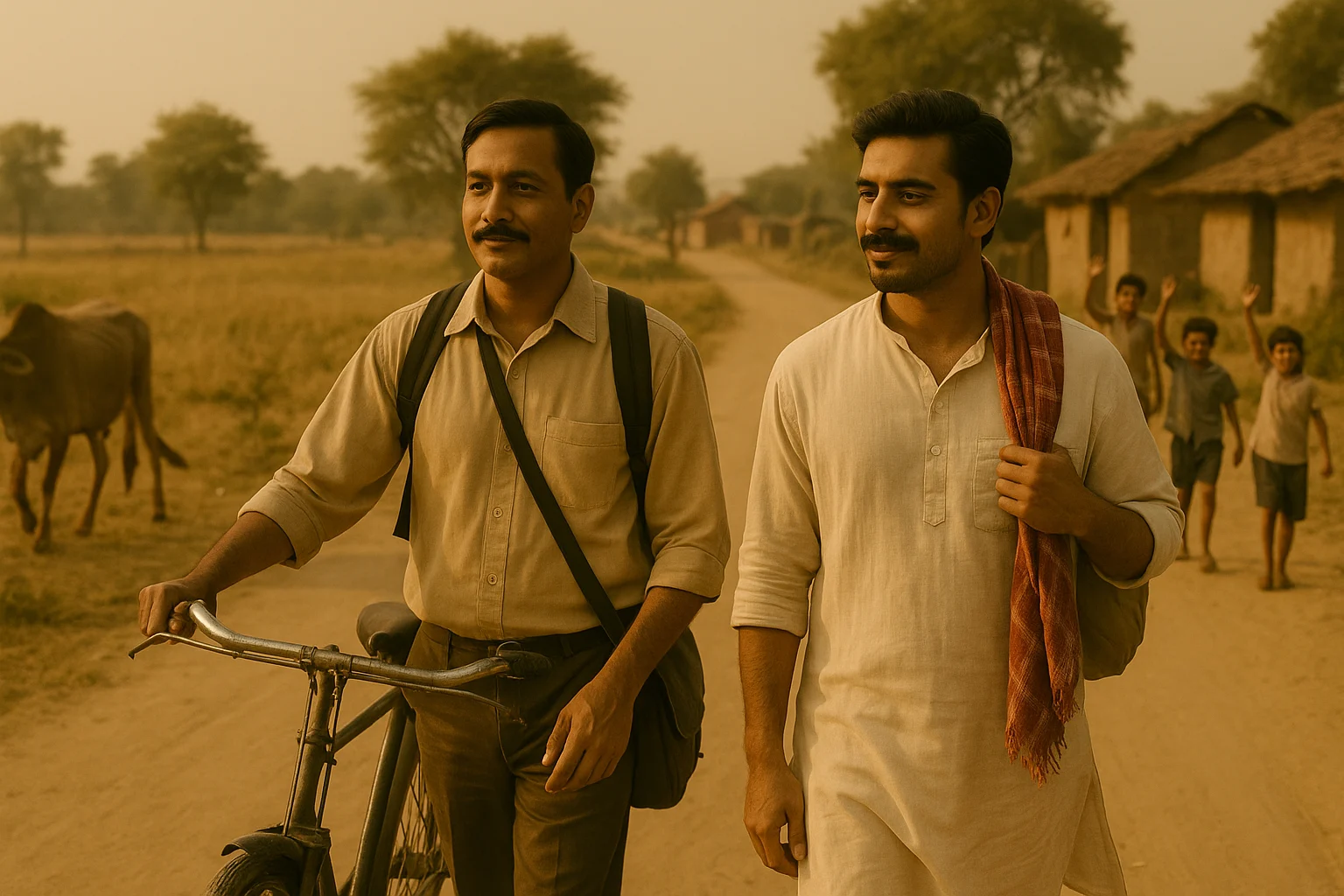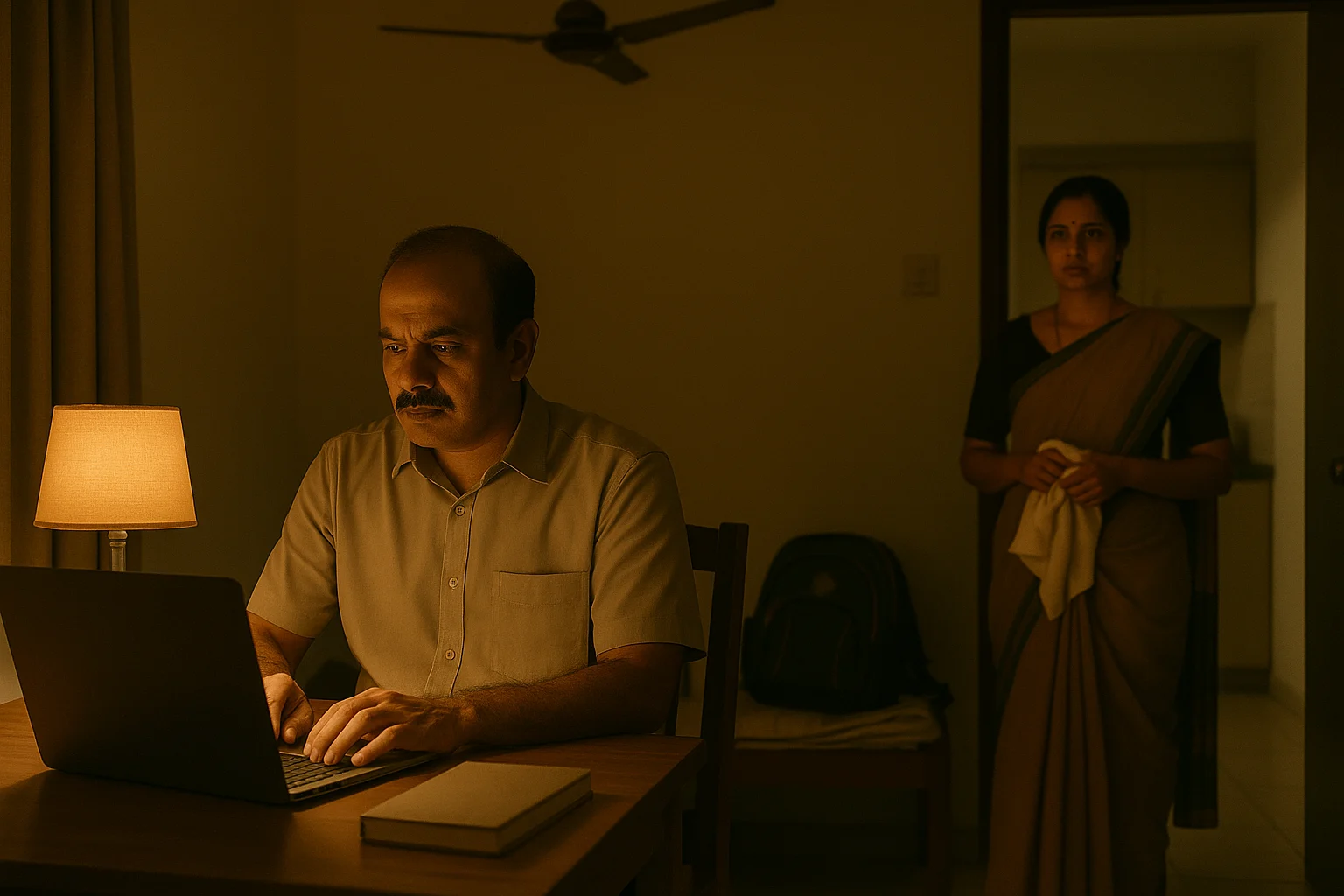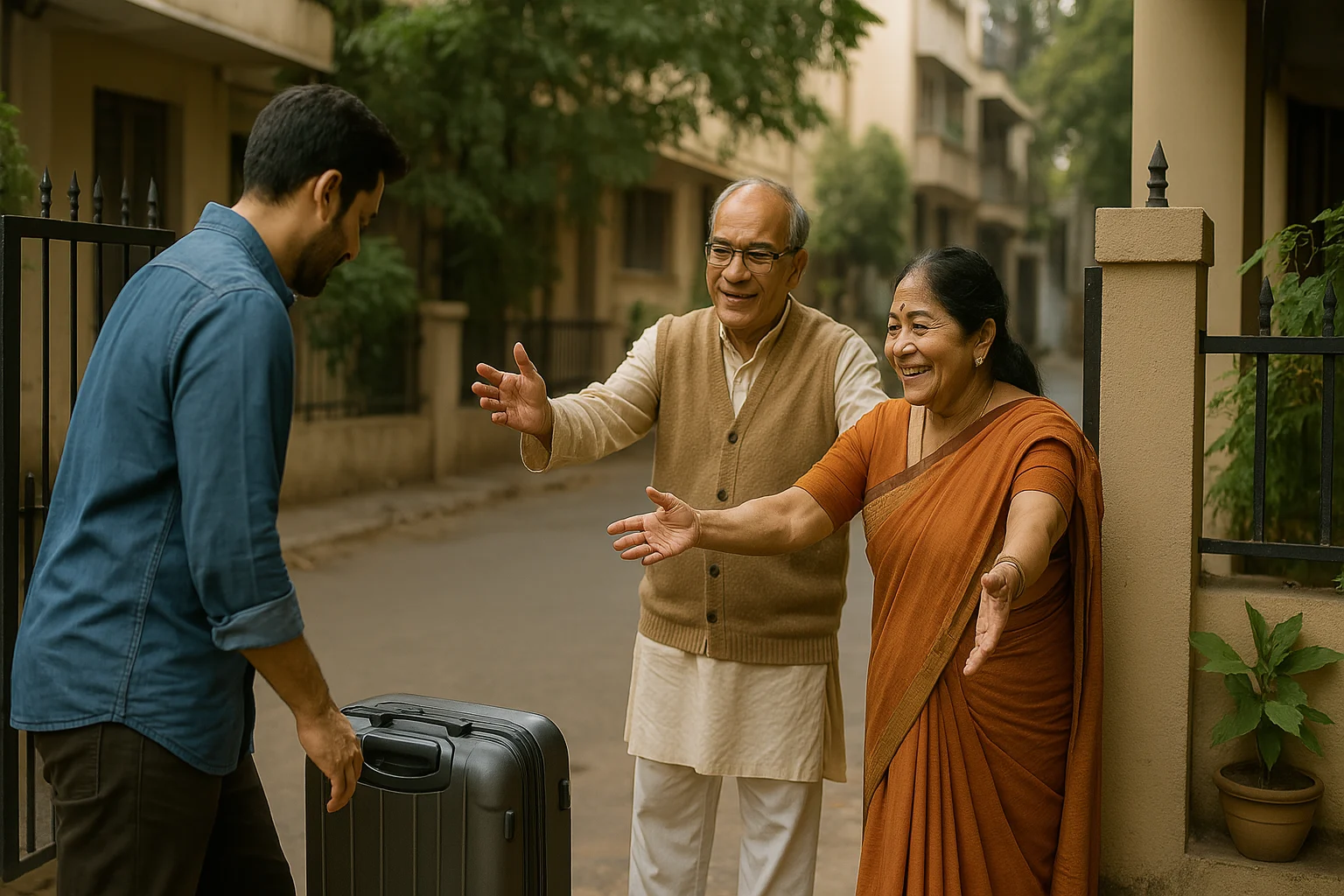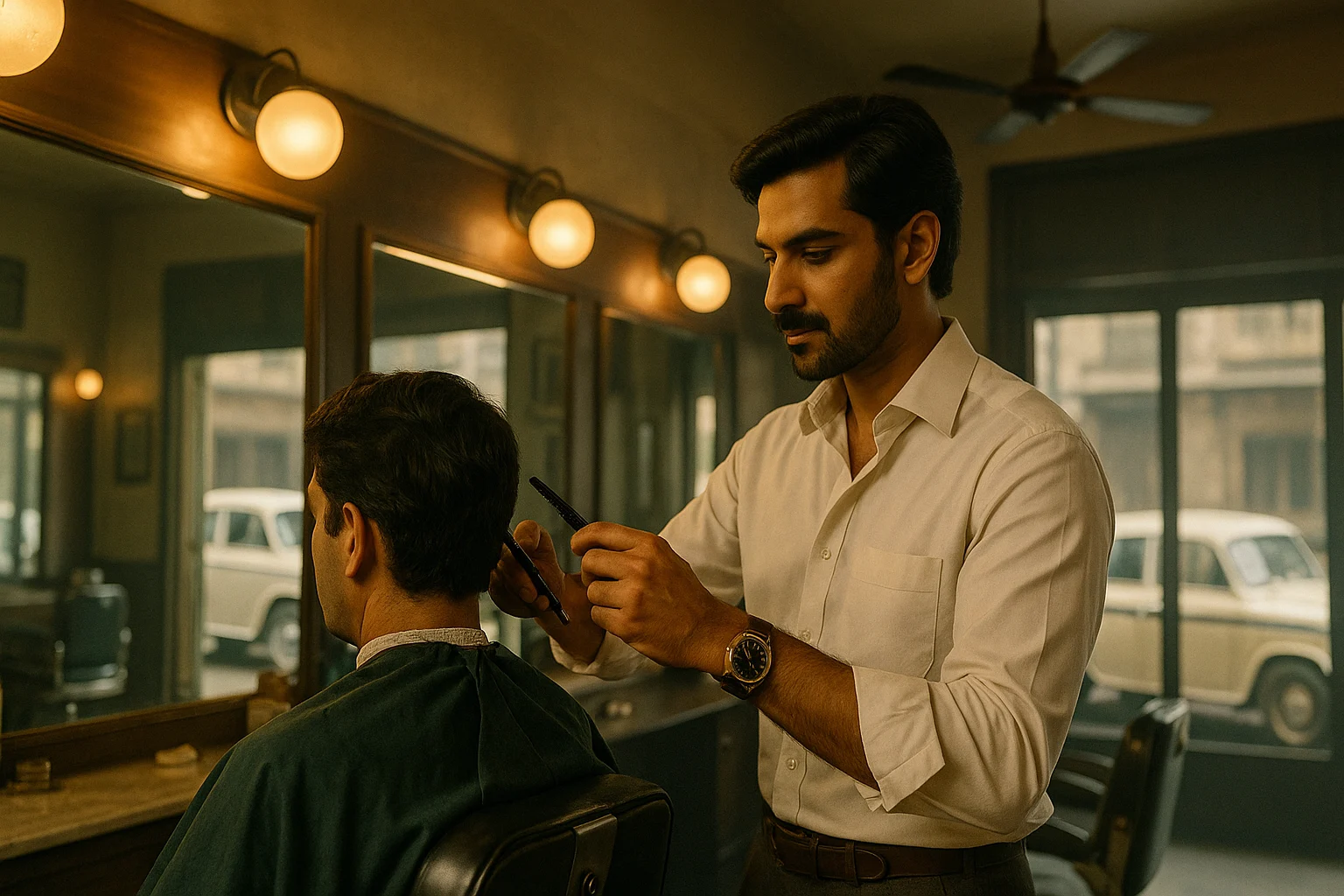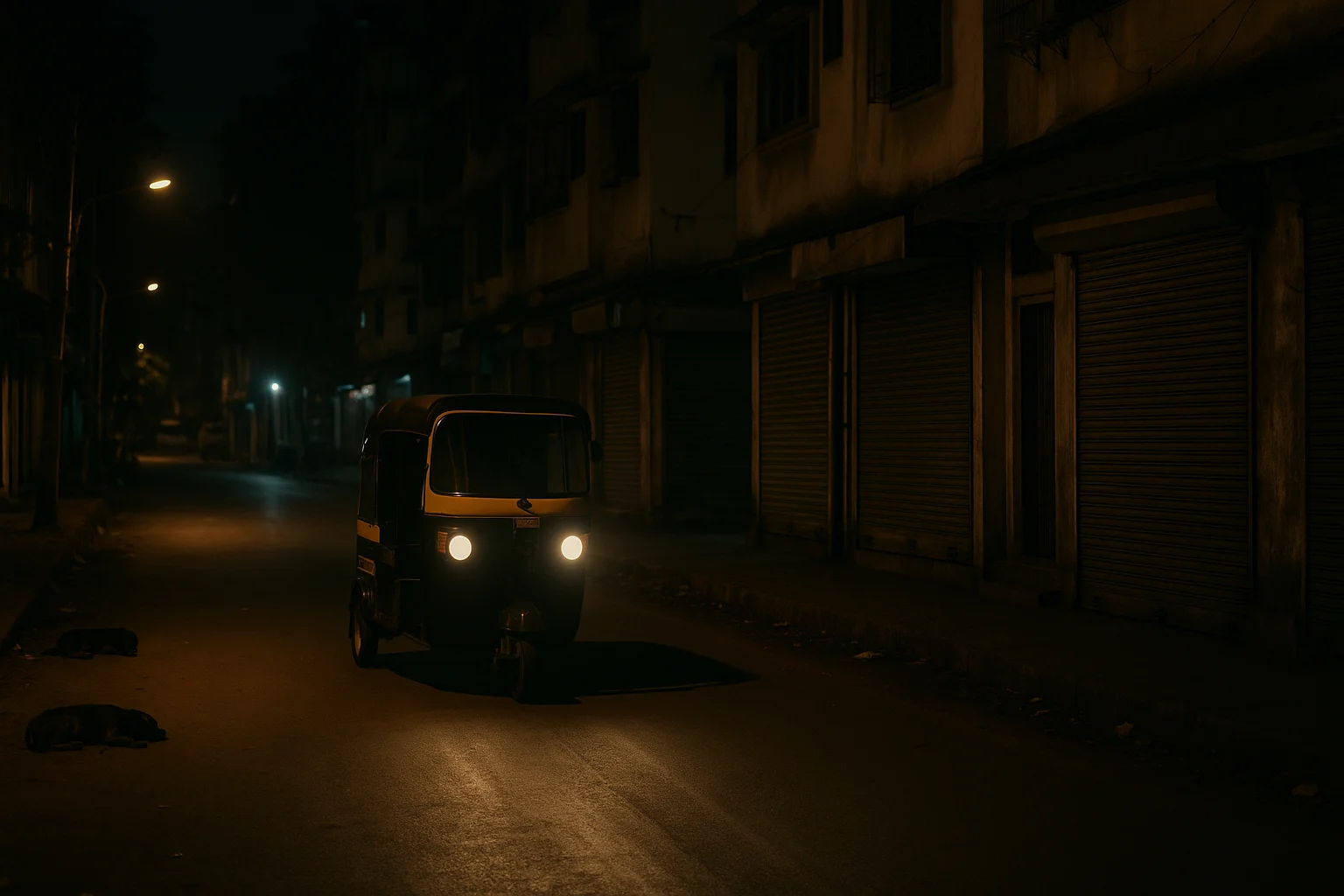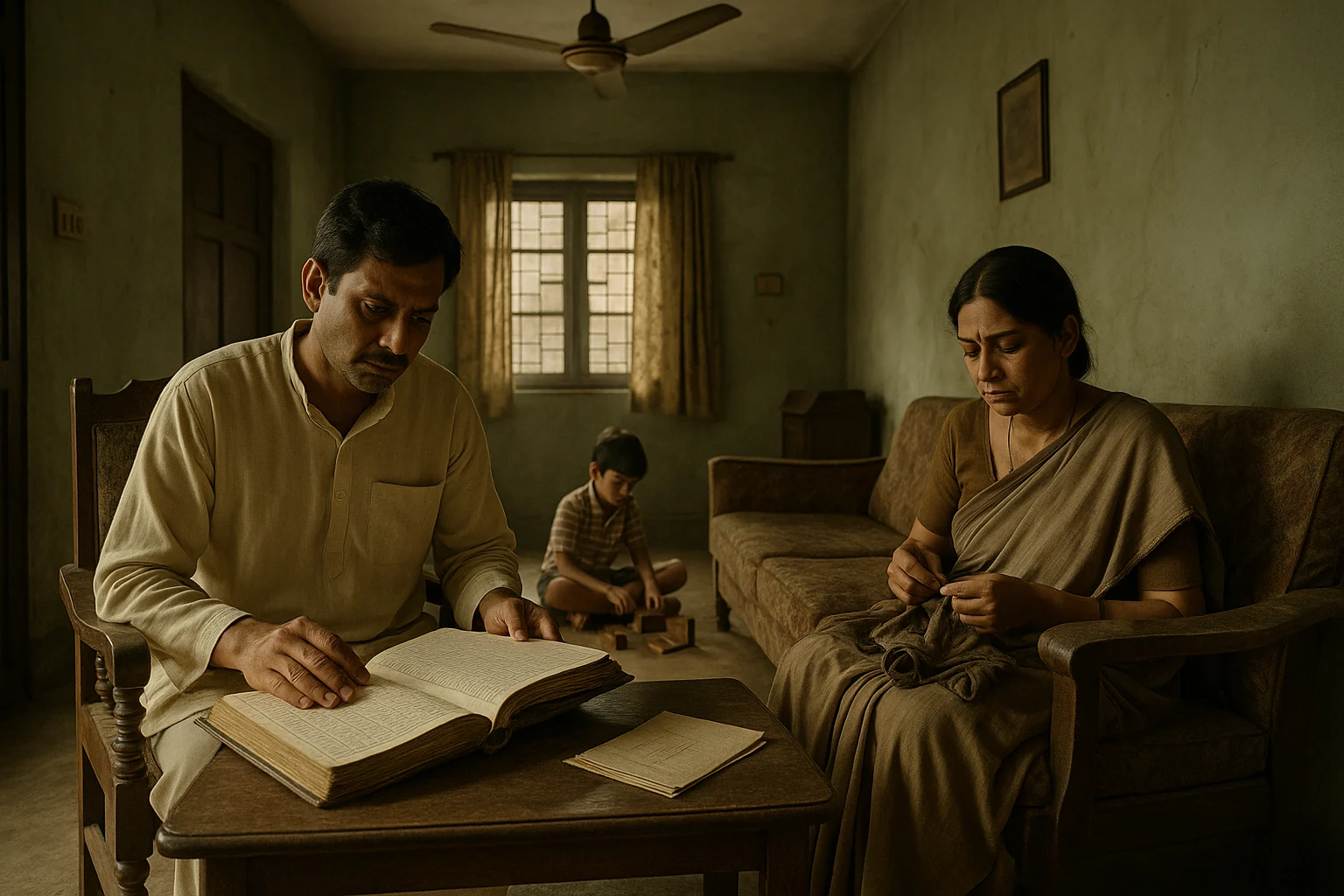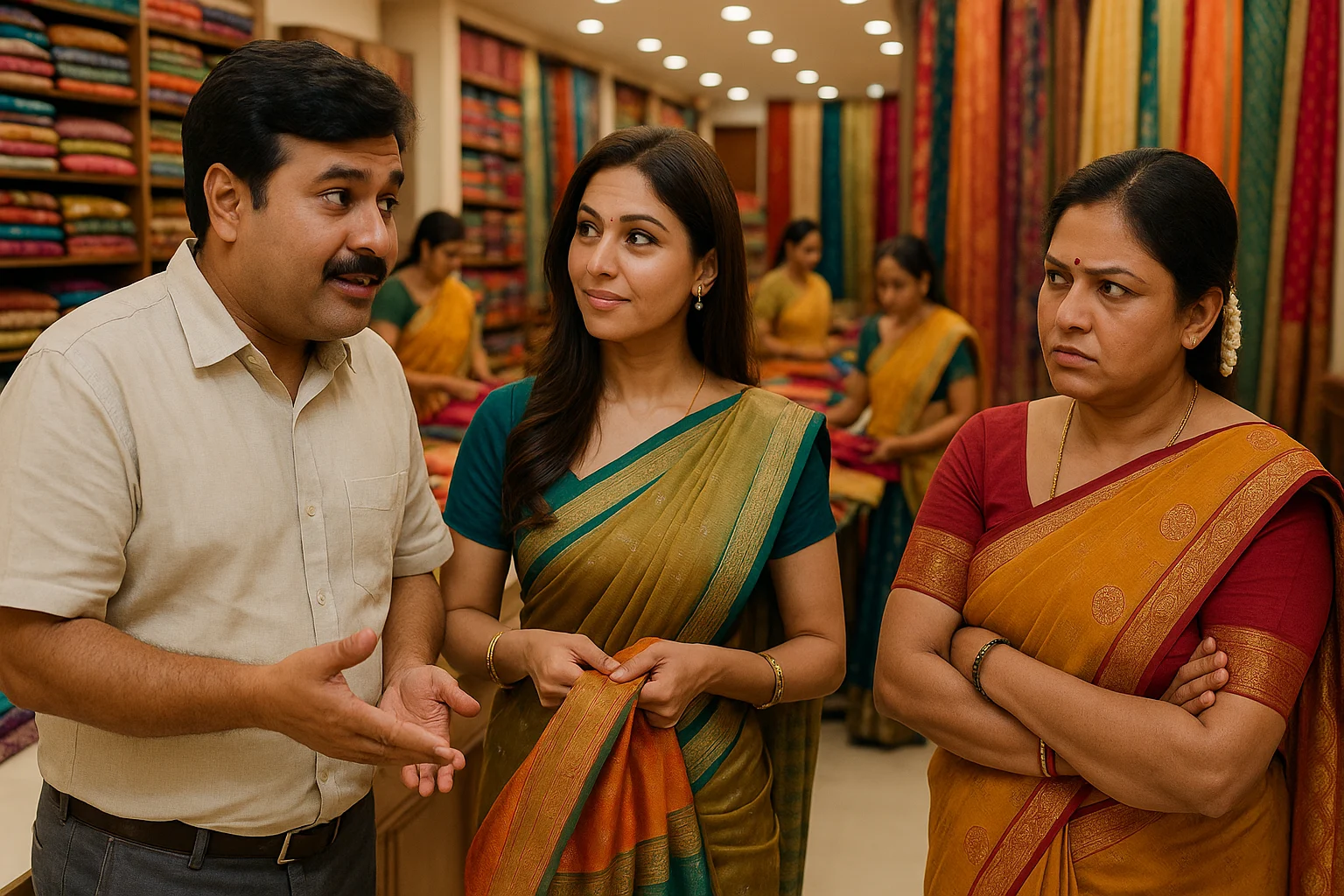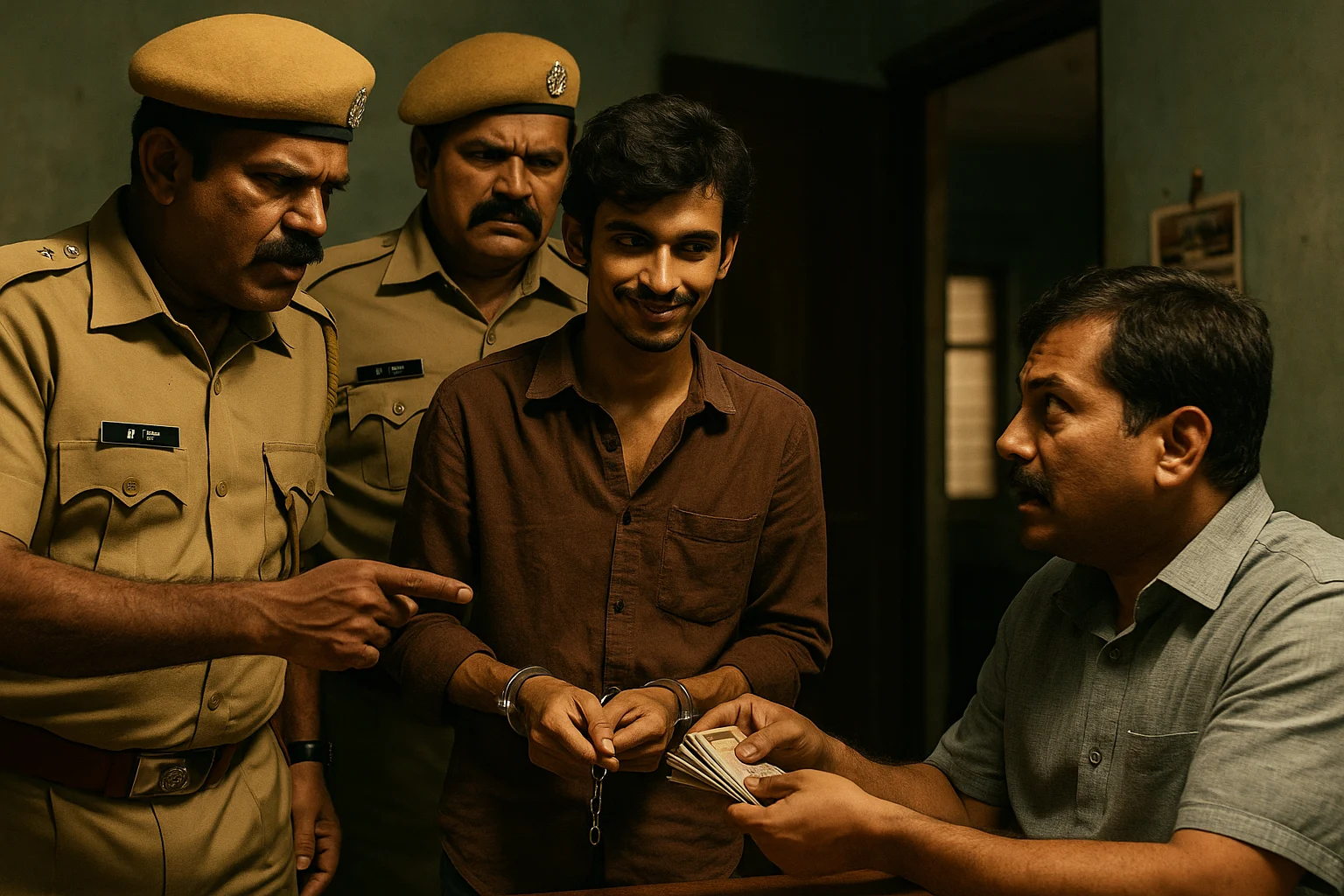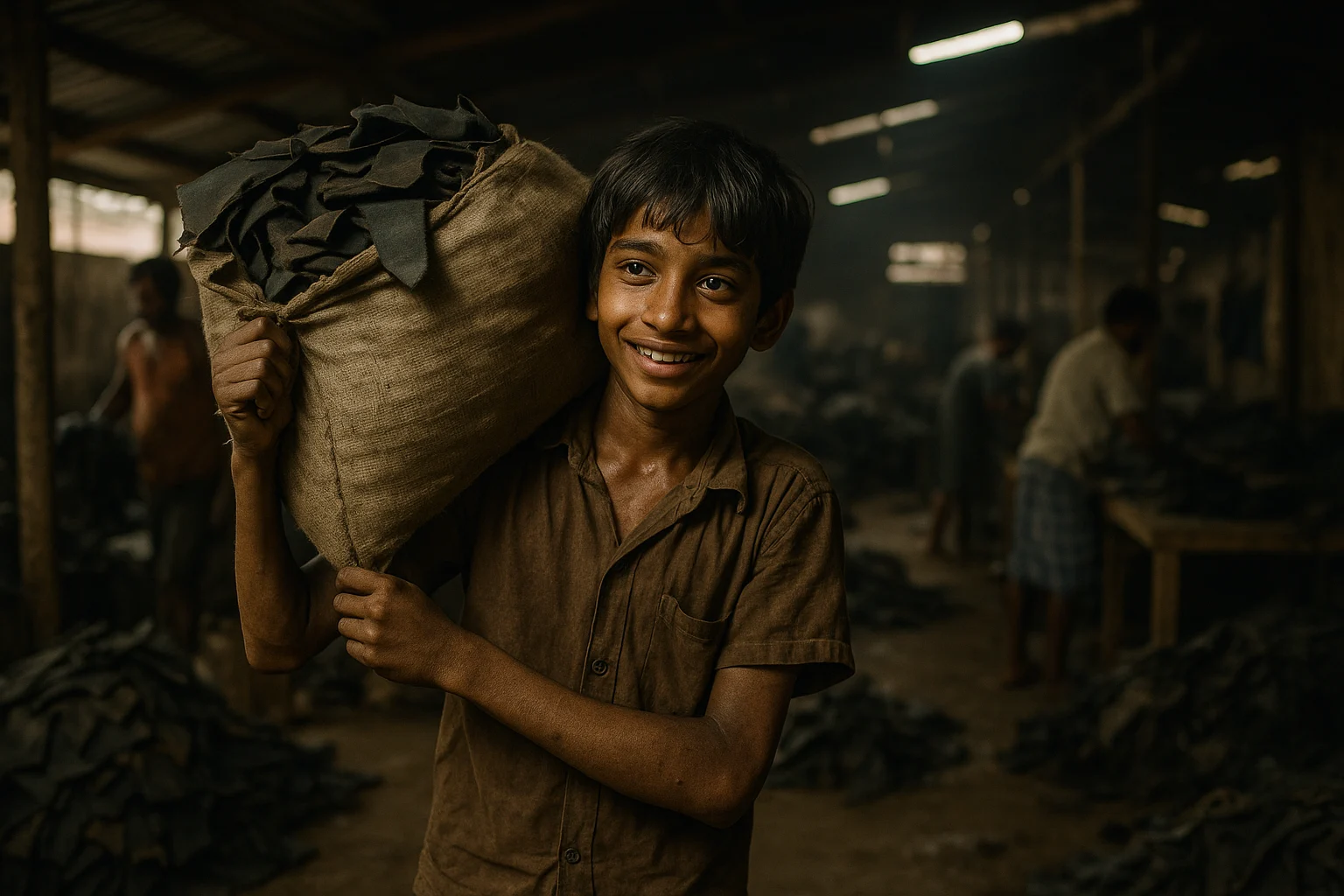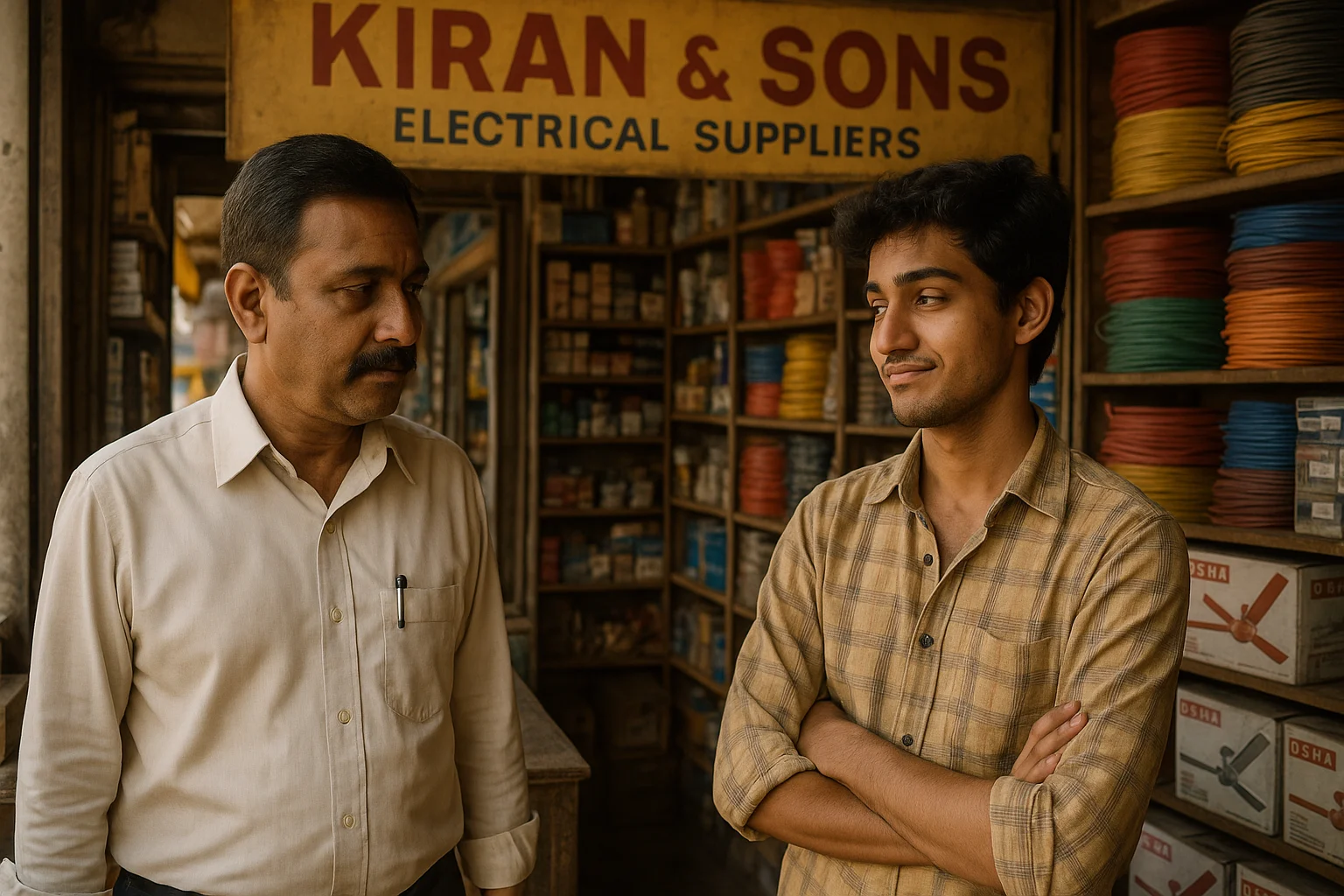In a quiet bylane of Virar, Mumbai, stood a crumbling two-storey house with peeling paint, rusty grills, and echoes of disappointment. Inside lived Ramesh, a 42-year-old man who was once the loudest kid in class and now whispered his excuses into the corners of his in-laws’ house.
Ramesh had two elder brothers—Mahesh, the CEO of a rising IT firm in Bangalore, and Umesh, the owner of a successful textile business in Dubai. Their names were often mentioned with pride during school reunions, community gatherings, and WhatsApp forwards about “local boys who made it big.”
But Ramesh? He was the cautionary tale.

The Family That Could Have Been
Ramesh’s wife, Anita, conducted home tuitions in their cramped living room. She taught multiplication tables while trying to mentally divide the monthly ration bills and school fees. Their son, Rohit, often wore shoes with soles glued thrice, and their daughter, Anvi, pretended she didn’t want to attend the school picnic because she “hated water parks.”
In truth, the family couldn’t afford her ticket.
They lived under the roof of Anita’s father—an old retired railway guard with a fierce moustache and a sharper tongue. He had stopped speaking to Ramesh two years ago after Ramesh borrowed ₹5,000 for a “business idea” and returned nothing but excuses.

A Master of Shortcuts
Ramesh had tried everything—selling imitation jewelry, trading second-hand mobiles, importing “foreign perfume” from Abdul in Musafir Nagar, and even running a paan tapri for six weeks (until he forgot to pay the supplier and vanished). Every venture ended the same: unpaid bills, angry partners, and a new story.
But Ramesh’s true skill lay in gossip.
He could stir up drama between neighbors with the precision of a soap opera director. He’d sit at Ganesh Tea Stall with a glass of cutting chai (paid by someone else), and narrate tales that turned uncles into philanderers and aunties into loan sharks.
Even people who once felt sorry for him had learned to keep their distance.

Friends Turned Foes
In school, Ramesh was that charming boy with jokes for every occasion. But charm without consistency is like tea without sugar—initially promising but eventually bitter. His school friends—Samar, now in Canada; Rajat, working with a bank in Dubai; and even Vinod, who once ran a panipuri cart and now owns a franchise—had all offered him opportunities at some point.
Samar once sent ₹50,000 for a food delivery startup idea.
Ramesh spent it on printing brochures and the rest on whiskey and “client entertainment.”
Rajat had offered him a job at a bank, but Ramesh didn’t show up for the interview—he claimed a “spiritual awakening” at a dhaba in Vasai where the fish fry reminded him of his destiny.
That destiny remained jobless.
The Intervention
One sultry afternoon, Anita had had enough.
“Rohit is asking why his father never goes to office,” she said, slamming the cupboard shut after hiding her tuition earnings in a Tupperware box.
“I’m exploring options,” Ramesh muttered, adjusting his already-adjusted vest.
“No, Ramesh. You’re exploring gallis for free daaru.”
That night, Anita did the unthinkable. She messaged Umesh and Mahesh, whom she hadn’t spoken to in five years due to Ramesh’s ego and their cold shoulders.
To her surprise, they replied.
And the next Sunday, both brothers arrived.
Mahesh came in a rented Innova with tinted windows. Umesh, dressed in a crisp white linen shirt, brought imported chocolates for the kids.
The house had never smelled more of tension.

The Family Showdown
“Ramesh, tu aakhir chaahta kya hai?” Mahesh began, seated in the only chair with a full cushion.
“I want to prove myself,” Ramesh replied, scratching his elbow. “But no one gives me a chance.”
“Chance?” Umesh laughed. “You burned chances the way you light beedis.”
Anita stayed silent. She wanted them to see what she lived every day.
“I’ve made mistakes,” Ramesh admitted, eyes darting toward the kitchen, hoping for chai. “But I can change.”
“Then show us,” Mahesh said, tossing a business card. “Be an office boy at my Mumbai branch. ₹18,000 a month. Earn our trust.”
“I’m not a peon!” Ramesh barked, ego bruised.
“But you’re not even a reliable friend, forget brother,” Umesh snapped.
Silence.
That night, Ramesh didn’t sleep. Not from guilt. But because the liquor shop had shut early, and he couldn’t find anyone to treat him.
The Final Blow
Two weeks later, during a school parent-teacher meeting, Anvi’s teacher asked Anita, “Why didn’t your husband come?”
Before she could respond, Anvi whispered, “Papa’s always tired.”
That line hit Anita harder than any insult.
She returned home and told Ramesh, “You don’t need to go. I’ll take the kids and leave. They deserve better than this daily disappointment.”
And for the first time in years, Ramesh didn’t argue.
Instead, he walked to the bathroom, looked in the mirror—and slapped himself. Repeatedly.

A Faint Spark
The next morning, he called Mahesh.
“I’ll take the job. I’ll clean tables if I have to. But I need to start somewhere.”
Mahesh was stunned.
“Prove it. Come at 9 a.m. sharp. No drinking.”
And Ramesh did. He went. Day after day. Slowly, the smell of whisky was replaced by the smell of responsibility.
People were still hesitant, but Anita smiled for the first time in months.
He was still imperfect. Still flawed.
But the glass was no longer empty.

Moral of the Story:
Talent and charm mean nothing without discipline, trust, and responsibility. One can’t build a life on gossip and free drinks—only on effort and consistency.
Receive Stories and Articles in your Inbox!
We won’t send any promotional or spam emails.
